If you don’t know where to start, just start somewhere.
This was the reminder I gave myself as we poured our newly opened puzzle onto the kitchen table, 1,000 pieces inevitably forming a hopeless pile of ambiguity and chaos atop the recently cleared wood. As I looked down at the freshly minted wreckage that lay before me, I felt my pulse race, my adrenaline spike, and my competitive spirit threaten to take over and get the best of me. In other words, as I looked down at the 1,000 discombobulated pieces before me, I felt paralyzed with indecision and terrified by the prospect that I would irrevocably mess things up.
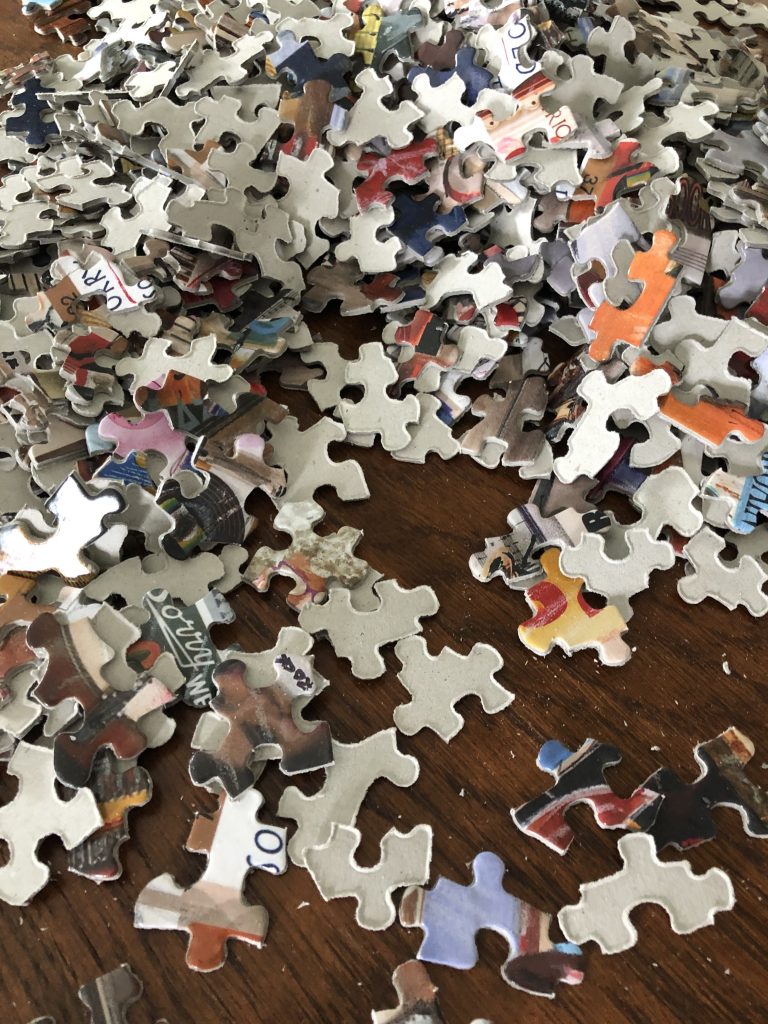
And then I heard that reminder.
Just start somewhere.
If you’ve ever completed a puzzle, specifically a particularly challenging puzzle, then you know this activity is not for the faint of heart. Rather, puzzles serve as complex, intrinsically excruciating mazes of precision, ambiguity, frustration, and inevitable failure.
Yet however frustrating they may be at times, puzzles act as the ultimate exercise in perseverance and mindfulness. Similar to the color “turquoise” which connotes patience, stability, and balance, puzzles require a certain level of dedication and focus that inherently forces builders to pause, slow down, and reassess things from a new point of view. Comprised of a healthy blend of several striking hues, turquoise radiates the peace and calm of blue, the inevitable growth of green, and the uplifting energy of yellow: All emotions you experience while building a puzzle, right[1]?
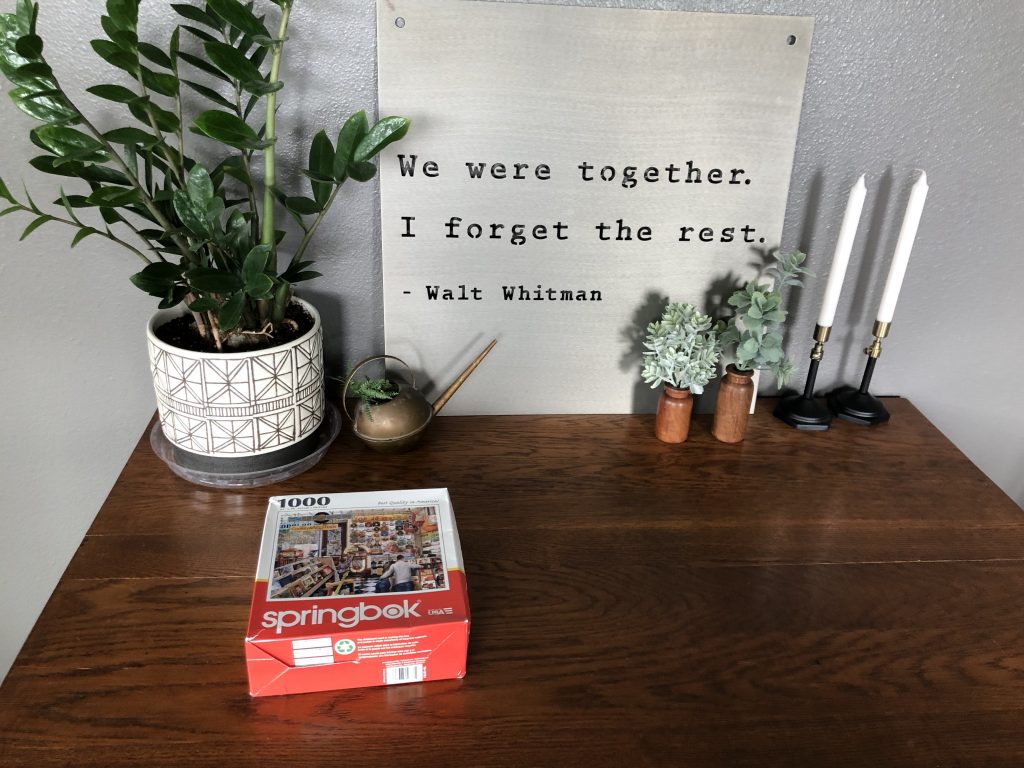
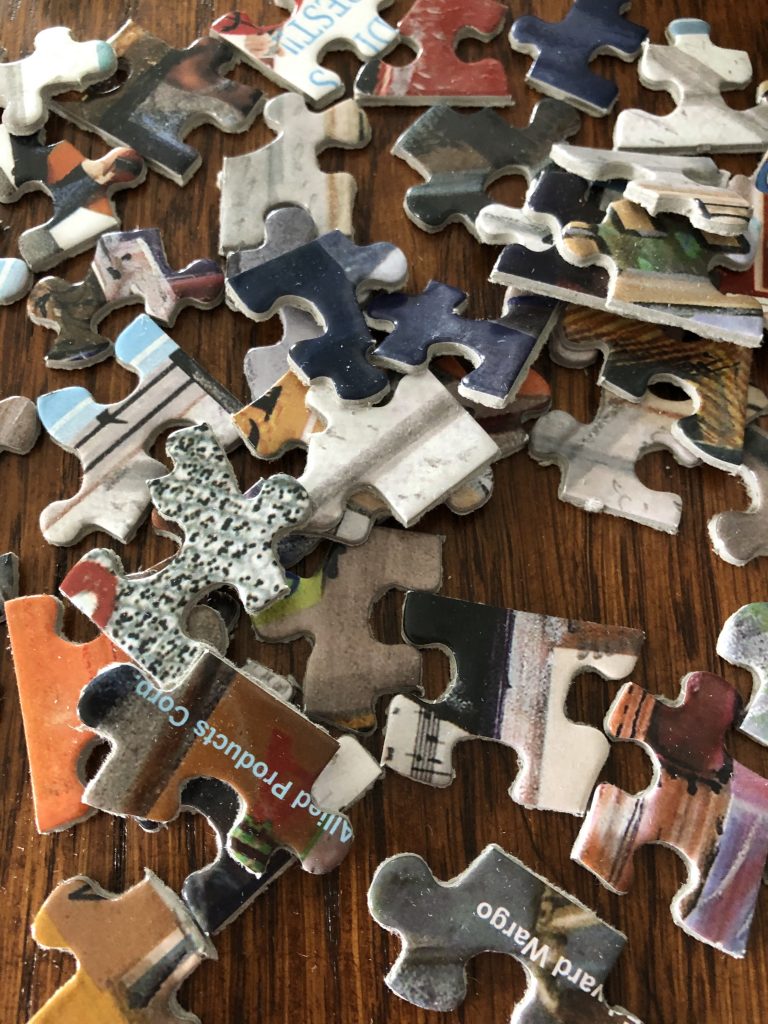
Since their inception in the 1760s, puzzles have existed as entertainment that simultaneously stimulates the brain and calms the nerves. Originally created as a game to test one’s ingenuity and knowledge, puzzles prompt their solvers to think creatively, suspend anxiety, and practice unrelenting patience. Puzzles are inherently educational in a way most games are not: They teach solvers to lean into ambiguity, pursue multiple strategies, and embrace the fact that there isn’t one singular right way to do things.
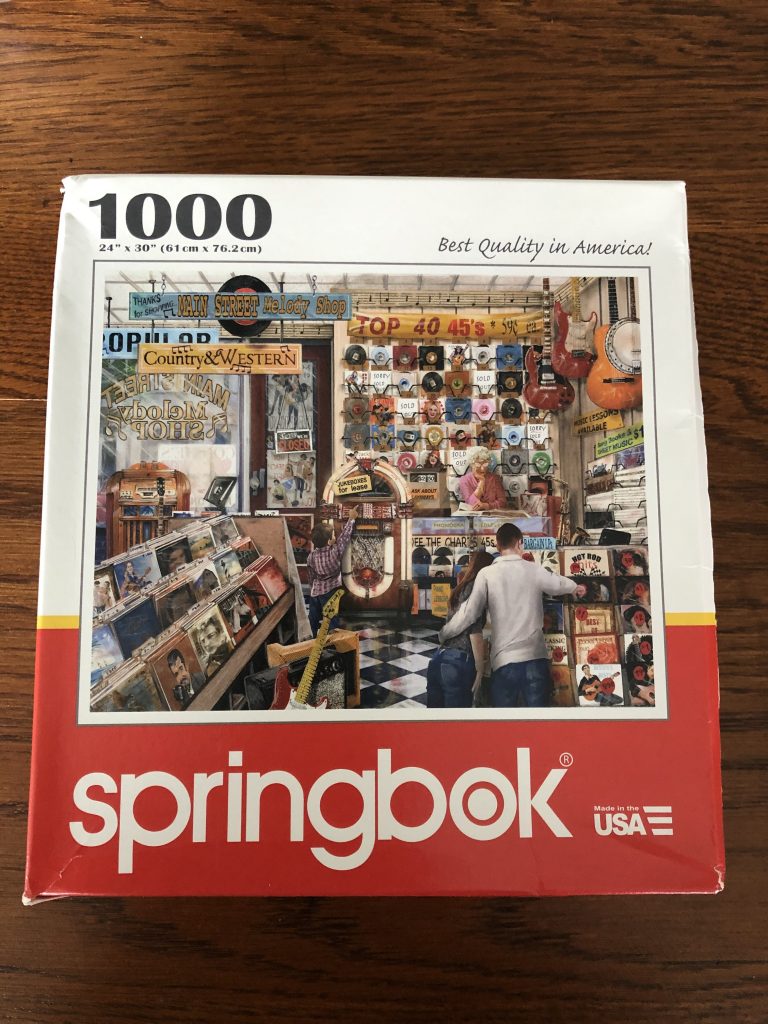
Indeed, one of the most beautiful parts of puzzle making is that there are nearly endless ways to solve a puzzle, and this marvelous fact rewards creativity, perseverance, and critical thinking in a way few other modern pursuits can. For when it comes to building a puzzle, the end goal is always the same, but the paths to get there diverge greatly, each path being equally as “correct” as the next.
And, while this is fitting wisdom for beginning any daunting task, it also serves as a powerful framework for life on a larger level. In general, life is full of twists and turns, moments of great joy and periods of grueling anticipation and uncertainty. It is easy to become overwhelmed, feeling like we need to carefully cull through all 1,000 pieces and make sense of the madness at once, even if we don’t know what the end picture will ultimately look like. In an effort to alleviate our discomfort it can be tempting to jump ahead and speedily sprint towards the finish line without greater regard for the journey, moving forward haphazardly in a way that ultimately stunts our growth.
This human tendency is natural in all seasons of life, but it particularly heightens in times of crisis and great uncertainty. In these moments it becomes particularly easy—and even tempting—to stare at the mounting heap of disjointed meaning before us and become debilitated with the paralysis of indecision. There is so much to address, so much to sift through, so much to flip over and decipher, that it becomes impossible to know where to dive in.
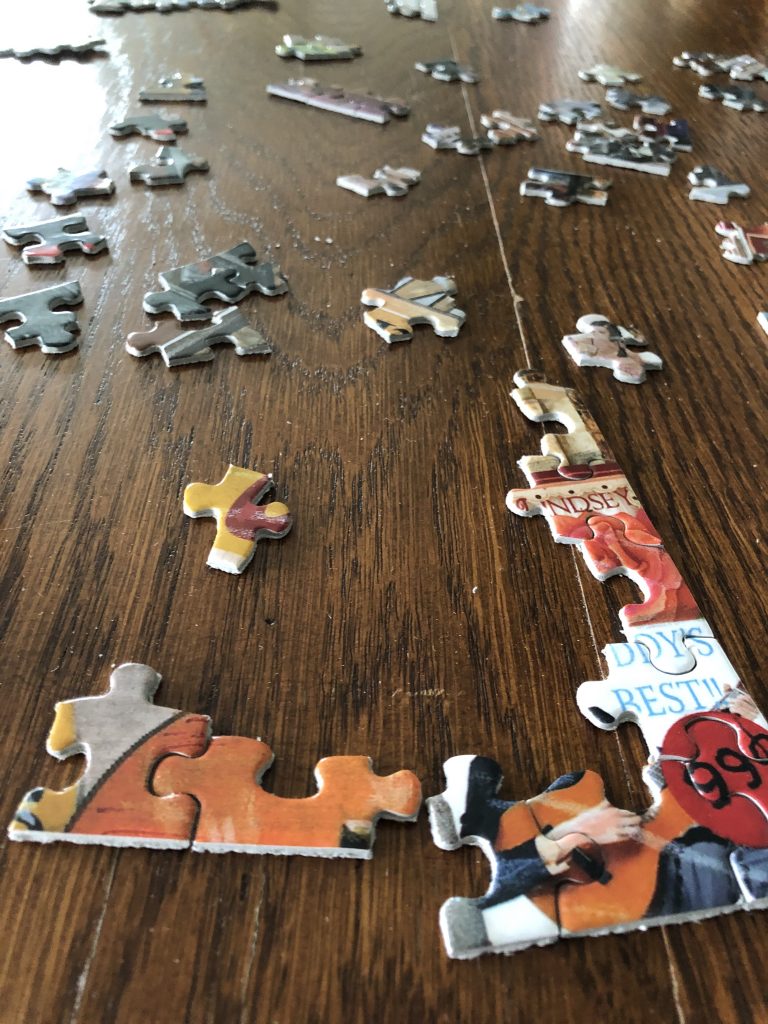
However, if suffering through building puzzles has taught me anything, it’s that there isn’t one way to approach life’s problems. To the contrary, there exists countless ways to begin, countless ways to experiment, and countless ways to ultimately create something beautiful, dig into the madness, and form something whole from the chaos that surrounds you. Despite the uncertainty, despite the ambiguity, trust that you already have the makings of great success within in you. You can do hard things: You just need to take a deep breath, steel your nerves, and choose to start somewhere.
Why not start today?
[1] Yes, I realize this rhetorical question might come off as relatively facetious depending on your specific puzzle-building experiences…

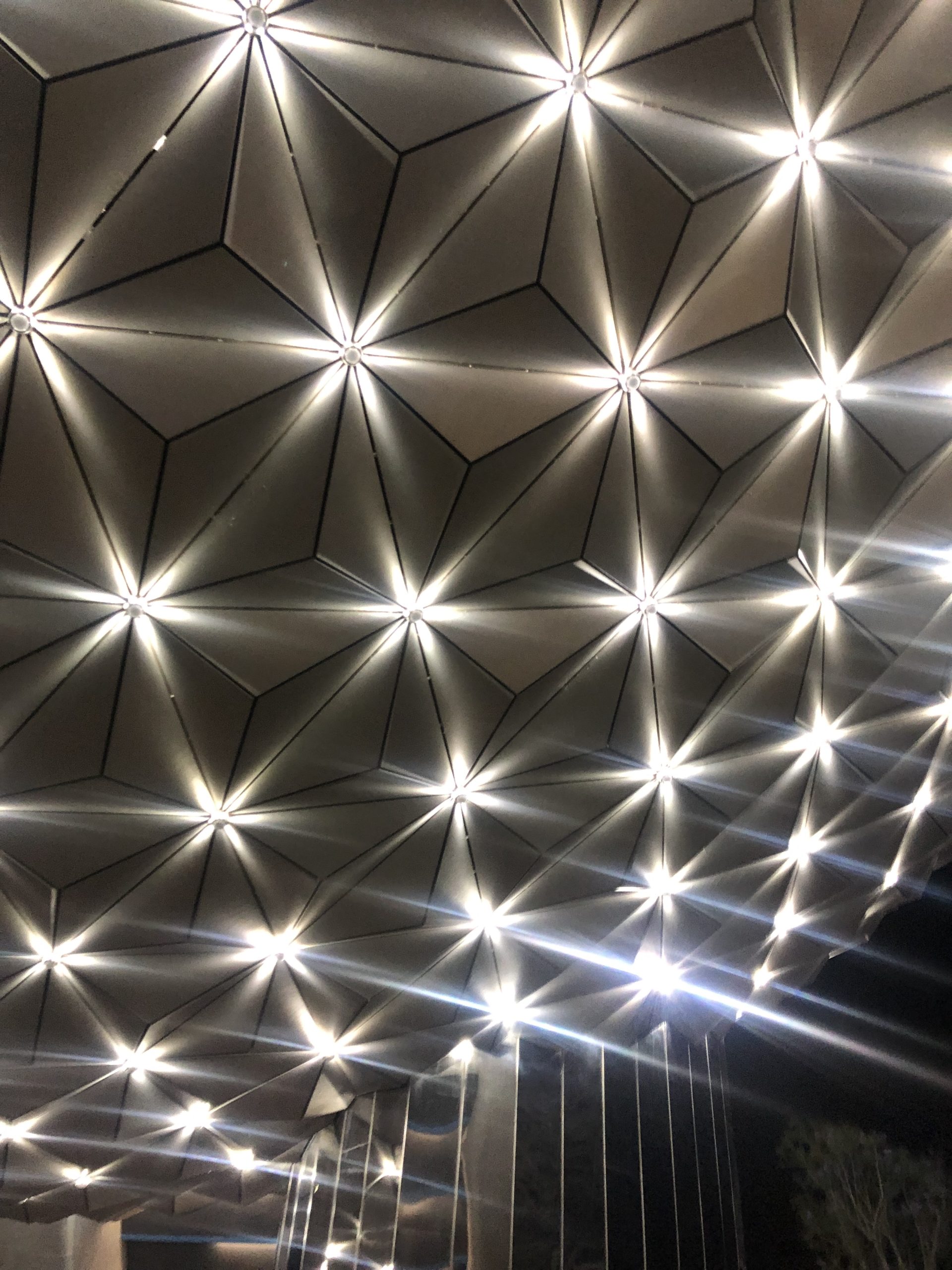

Comments are closed.